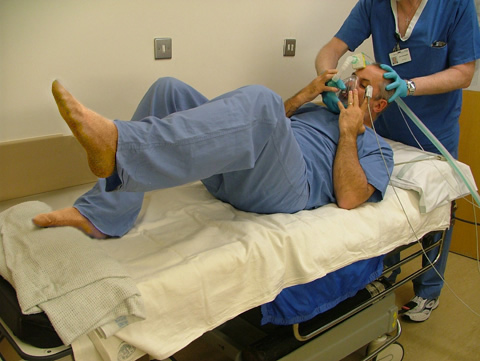Disadvantages
Disadvantages of inhalation induction:
The smell may cause anxiety or refusal of the technique.
The use of induction agents (isoflurane, desflurane) may result in coughing and laryngospasm.
Disadvantages of inhalation induction:
- Smell of agent
- Airway irritation
- Traumatic second stage of anaesthesia can be particularly difficult in adults, and difficult also for the anaesthetist. It is advisable to forewarn those working with you, and to seek their assistance if necessary
- Cardiovascular and respiratory depression
- Delayed definitive airway control
- Theatre pollution
- Malignant hyperthermia
- Explosion

This is dose related and therefore occurs at deeper levels of anaesthesia.
This is dose related and therefore occurs at deeper levels of anaesthesia.
This is a potential problem in a high risk, vomiting patient.
Scavenging during inhalation induction is difficult in children, where there is a refusal of face mask application.
All volatile agents can precipitate malignant hyperthermia in susceptible individuals.
There is a risk of explosion with ether or cyclopropane. Cyclopropane is no longer used, but ether is still used in some parts of the world.